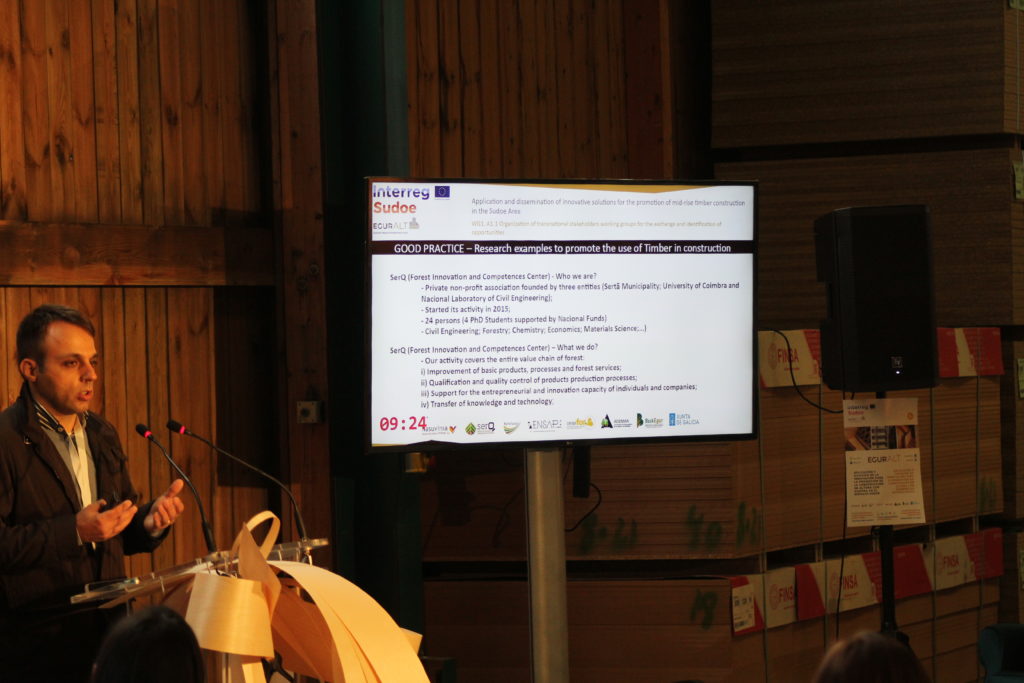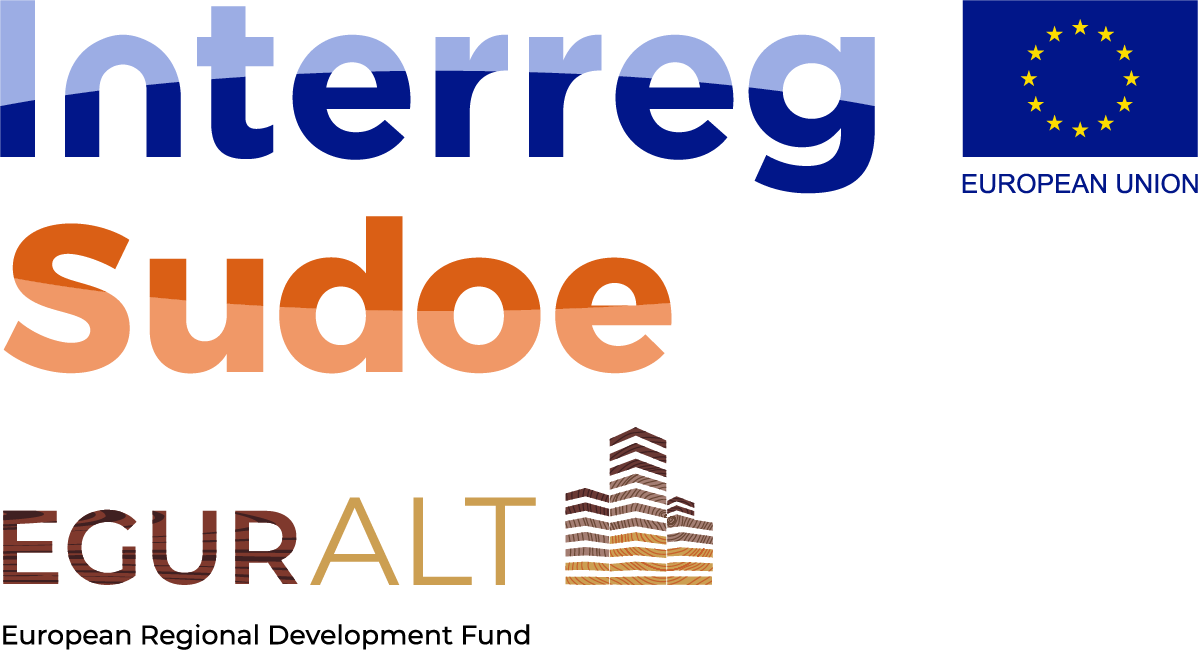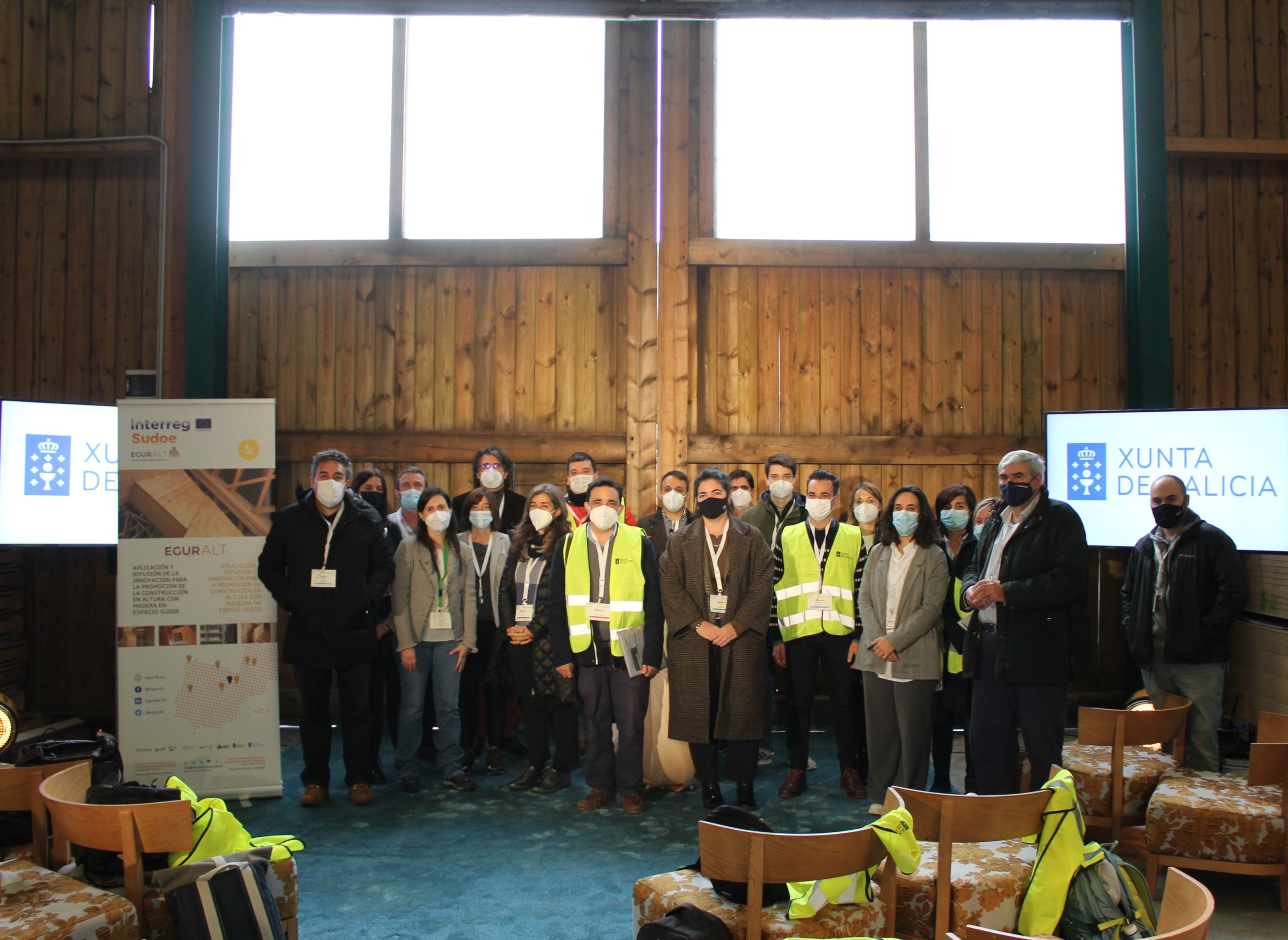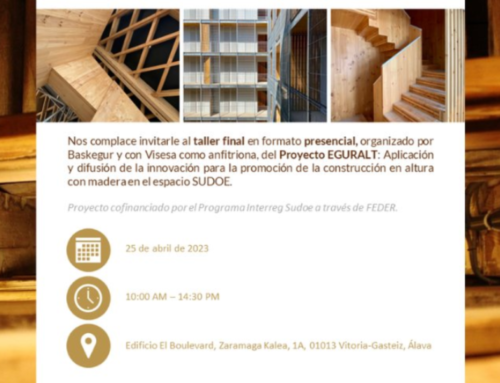The Axencia Galega Da Industria Forestal (XERA) and Maderas Besteiro hosted a new workshop of the Interreg Sudoe Eguralt Project.
The Interreg Sudoe Eguralt Project held its second interregional workshop on 3 November. On this occasion, the partners in charge of organising the event were XERA and Baskegur. The Axencia Galega Da Industria Forestal organised a fantastic day at the facilities of Maderas Besteiro, where more than 20 people from Galicia, Navarra, Castilla y León, Portugal and France gathered.
The conference was organised at the manufacturing facilities as a clear and decisive commitment to the enhancement of an industry that is an innovative reference. In this case, moreover, Maderas Besteiro has been a key player in the promotion of new materials and the use of wood in construction, so there was no better setting.
The Workshop was attended by the 8 partners of the project and 3 parts could be distinguished throughout the workshop; sharing and assessment of good practices, discussion of the 4 working groups (promotion and public policies, training, business strategy of the sector and R+D+i) and 4 study visits that included Maderas Besteiro, Centro Social Lamas de Prado, Impulso Verde and Xilonor.
Good practices

In terms of good practices, the first turn went to the leader partner of the project, Nasuvinsa. This first example focused on the need for rental housing. In this context, it presented its Navarra Social Housing project, which will have 524 dwellings built in wood. Next, it was the turn of CESEFOR, which presented two good practices. The first of these was the implementation of the mechanical structural classification of local species in the industry, through which the classification of Scots Pine and Radiata Pine has already been approved. The second was ‘MaderAula‘, a training classroom for operators and technicians on wood construction.
BASKEGUR presented the third of these good practices based on the problem of why timber is not very used in construction. To this end, they shared the EPD (Environmental Product Declaration), which serves to accredit and communicate the excellence of the products. On the other hand, they also presented a project for 65 social housing units built in wood in Hondarribia. Next, it was the turn of XYLOFUTUR, which introduced the partners to an innovative website where technical information on timber construction is shared (catalogue-bois-construction.fr) and Woodrise, an international congress on wood construction at height, which was an initiative of the French Technical Centre for Timber Construction (FCBA), which aims to build an ecosystem around timber construction.
Following the international presentations, SERQ shared with the partners its research on the use of different types of wood to improve construction processes. In this way, by combining different types of wood, improved results can be achieved. ADEMAN‘s good practice focused on the use of LSL box beams for the construction of single-family houses and how they use their own poplars in wood processing, thus creating a good example of circular economy.

Finally, the last two best practices were from ENSAP Bordeaux and XERA. The École Nationale Supérieure Nationale Supérieure d’Architecture de Bordeaux focused on the need for training and therefore talked about how a compulsory course on timber construction has been introduced in the second year of the degree course. Finally, the hosts presented an example of how to combine timber construction with the health sector through the construction of a primary care centre.
Discussion groups
After evaluating the good practices, the partners were divided into discussion groups to deal with the different topics of the project: promotion and public policies, training, business strategy of the sector and R+D+i. Thus, with regard to promotion and public policies, it was considered that a paradigm shift is needed, from the back to the front, starting from the needs and problems to find solutions, and a strategy was called for as a country to seek a greater impact.

With regard to training, which is fundamental for the present and future of timber construction, it was pointed out that before training, it is essential to attract, and this will require public policies. Furthermore, the creation of associations was put forward as one of the possible solutions. In terms of business strategy, more research was sought into “a catalogue of solutions” that proposes a better and wider use of local species. In addition, the need to further improve wood-related products, processes, etc. was reinforced.
Finally, in terms of R+D+i related to wood, there was talk of an improvement in the timber industry that affects all sectors equally, from forest culture in the forests to the improvement of manufacturing processes or the use of new products in construction.
To conclude, the workshop was closed by the director of XERA José Ignacio Lema Piñeiro who assured that wood is “a living material” and that projects like EGURALT are necessary for a better functioning of the planet. “If we manage to improve this industry, we will improve the world“, he concluded.
Study visits
Alongside the workshop, XERA organised 4 study visits; Maderas Besteiro’s own facilities, the Lamas de Prado Social Centre, Impulso Verde and Xilonor. A combination of places of wood transformation with others of construction that are very representative of what EGURALT pursues: exchange of knowledge, experimentation with new processes and products and capitalization of knowledge.
EGURALT, which is part of the Interreg SUDOE Programme, is 75% co-financed by the European Regional Development Fund (ERDF) and has a total budget of 1,011,562.50 euros.




